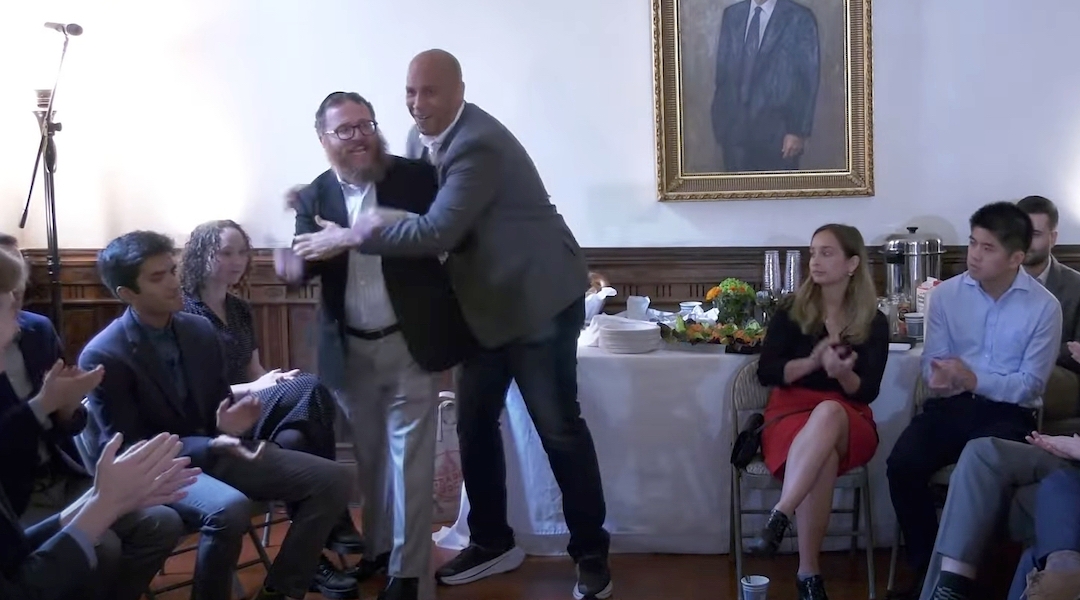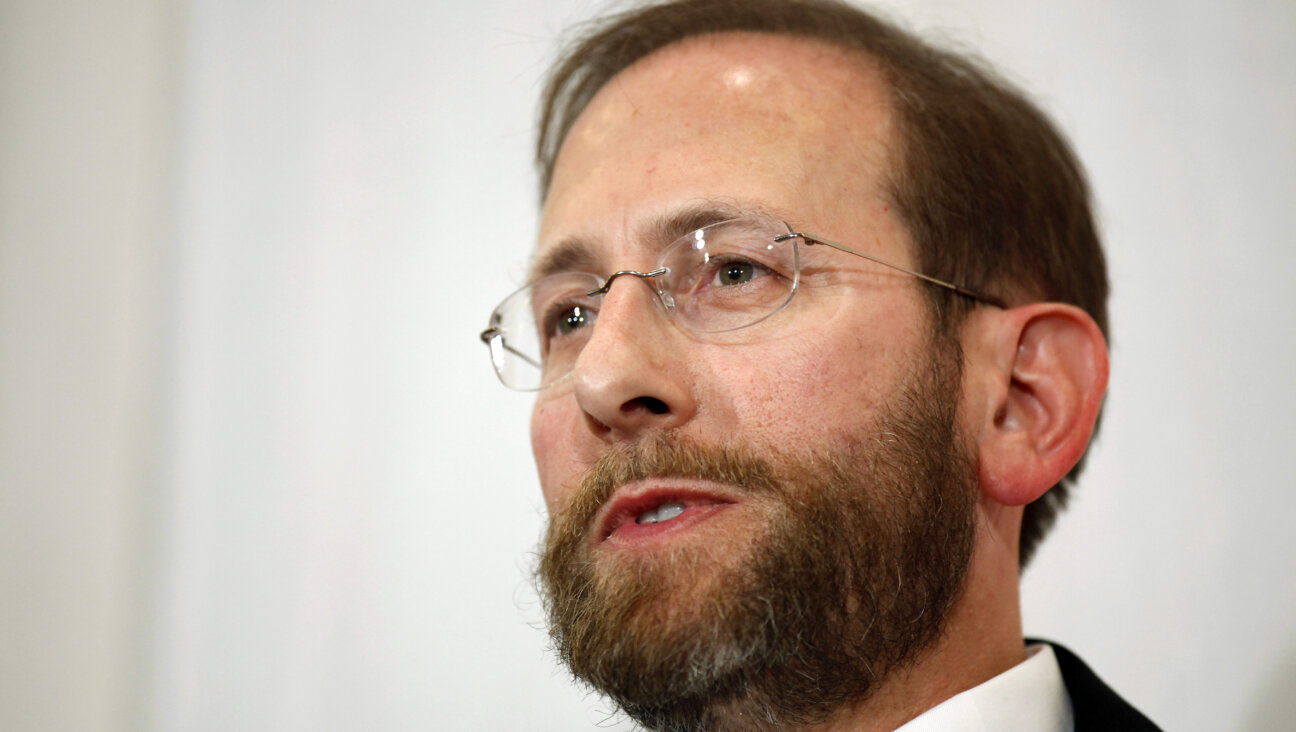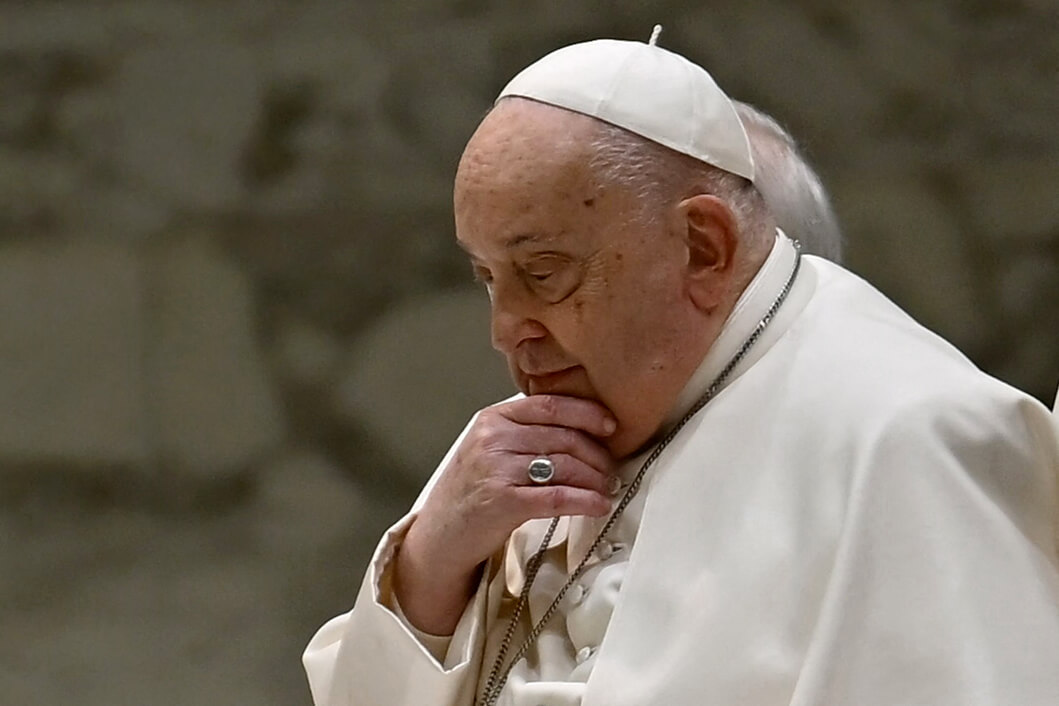A Roadside Rally For Soldiers Who Refused Orders
Some 400 protesters gathered recently outside a prison dating back to the British Mandate to offer solidarity with inmates who are being hailed by some as modern-era Sharanskys.
“Refuseniks claimed the right for Jews to live in a certain place in the world, and these youngsters are defending that right,” Likud party activist Shlomo Amshalem said of two men being held inside the prison.
The inmates, soldier-students at a military-linked yeshiva whose chief rabbi had urged them to defy orders if asked to evacuate Jewish outposts on the occupied West Bank, were refusing reassignment to another yeshiva.
And to Amshalem, the parallel was clear. “First, it was the Bolshevik regime denying [Jewish rights],” he said. “Now it’s Israel.”
For some close observers of the Israeli military, the soldiers’ insubordination was part of a trend. In a 2004 article, Stuart Cohen, a political scientist at Bar-Ilan University, warned that Orthodox soldiers were increasingly turning to their rabbis rather than their officers for rulings on combat ethics. But the protest, too, could be seen as a kind of warning flare, demonstrating the unexpectedly strong public response that could come with efforts to enforce military discipline.
The demonstration participants called the gathering, held the night of May 15, a melaveh malka, the traditional post-Sabbath celebration. But in fact, it was a ritual to crown their new heroes.
The location was Atlit, where, back in the 1940s, the British interned thousands of illegal Jewish immigrants to Mandatory Palestine. Now the demonstrators were supporting two army recruits from the Har Bracha yeshiva in the West Bank.
Late last year, the yeshiva’s head, Rabbi Eliezer Melamed, encouraged soldiers to disobey any orders to evacuate Jewish settlements or outposts. His comments on the subject followed two incidents in which soldiers waved banners opposing their battalions being used to evacuate settlement outposts.
Har Bracha was part of the Hesder program, in which the army allows soldiers to study at yeshivas it endorses for part of their service. Responding to Melamed’s endorsement of insubordination, Defense Minister Ehud Barak expelled Har Bracha from the Hesder program in December.
Barak has said that Melamed is mixing politics with the army by advising soldiers to disobey expulsion orders, which he and many rabbis consider a violation of Torah law.
Soldiers studying at Har Bracha were ordered to either join another Hesder yeshiva or report back for army duties. Most Har Bracha students obeyed this order. But a small number — reportedly eight or nine — did not. Two of them, Natanel Lisha of Ra’Anana and Avido Kaminer of Rehovot, both 20, have been imprisoned in Atlit for 18 days. Their sentences are due to end on May 24.
The demonstration on their behalf was held at a junction near the prison. Their supporters sang songs and danced on the highway until the early hours of Sunday morning.
Asked about the demonstration, Avital Leibovich, a spokesperson for the Israel Defense Forces, told the Forward: “It is of some concern, because the IDF is a crucial element of Israeli society, and we’re not blind to trends in Israeli society.”
Polling conducted by Tel Aviv University in the wake of Melamed’s comments last year indicated that the belief that right-wing soldiers have a “right” to refuse orders if asked to evacuate a settlement is more widespread than is commonly presumed. The survey found that 29% of Israeli Jews across various demographics took this view.
The IDF spokesperson said whatever the polls indicated, “only very small numbers” backed insubordination.
Much of the crowd consisted of young ideologues. There were also prominent religious firebrands, such as Safed Chief Rabbi Shmuel Eliyahu, and figures from far-right parties, such as National Union lawmaker Aryeh Eldad. But there were others with more mainstream affiliations, like Likud’s Amshalem, who said he was there to provide “an example for my children,” referring to his sons, ages 15 and 8.
“These young people are the victims of a struggle between Barak and the spiritual leadership of Israel,” Amshalem said.
The beginnings of the event were tame, with a few dozen people standing on the roadside at 10 pm. But the numbers soon swelled, with those who gathered shouting slogans. “A good soldier does not expel Jews,” a huge banner unfurled by the protesters announced.
Shlomo Lisha, father of the imprisoned Natanel Lisha, addressed the cheering crowd, saying that for his army service, his son “deserves a medal, but instead sits in jail at a time when [former IDF soldier] Anat Kam sits at home with her friends and family.” He was referring to the fact that Kam, who is accused of removing classified information from the IDF and leaking it to the media, is being held under house arrest.
Contact Nathan Jeffay at [email protected]
The Forward is free to read, but it isn’t free to produce

I hope you appreciated this article. Before you go, I’d like to ask you to please support the Forward.
Now more than ever, American Jews need independent news they can trust, with reporting driven by truth, not ideology. We serve you, not any ideological agenda.
At a time when other newsrooms are closing or cutting back, the Forward has removed its paywall and invested additional resources to report on the ground from Israel and around the U.S. on the impact of the war, rising antisemitism and polarized discourse.
This is a great time to support independent Jewish journalism you rely on. Make a gift today!
— Rachel Fishman Feddersen, Publisher and CEO
Support our mission to tell the Jewish story fully and fairly.
Most Popular
- 1

Opinion The dangerous Nazi legend behind Trump’s ruthless grab for power
- 2

Culture Did this Jewish literary titan have the right idea about Harry Potter and J.K. Rowling after all?
- 3

Opinion I first met Netanyahu in 1988. Here’s how he became the most destructive leader in Israel’s history.
- 4

Opinion A Holocaust perpetrator was just celebrated on US soil. I think I know why no one objected.
In Case You Missed It
-
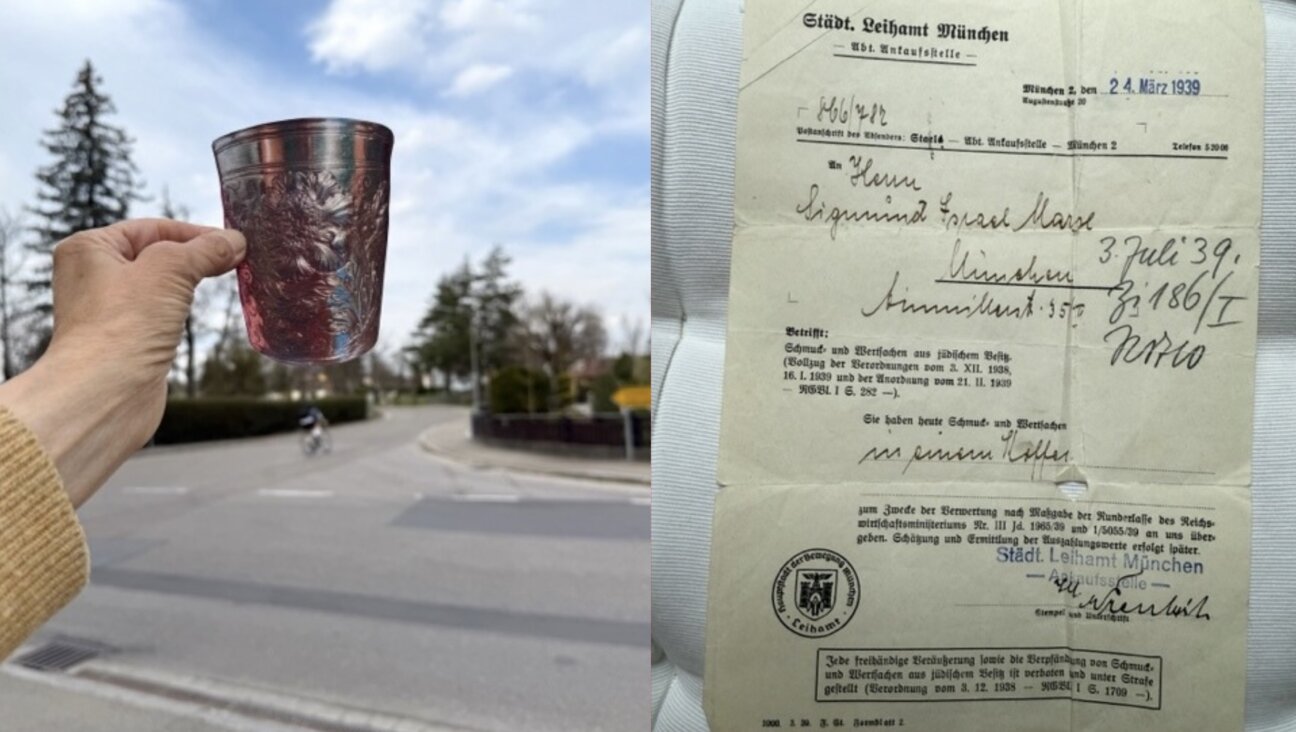
Culture In Germany, a Jewish family is reunited with a treasured family object — but also a sense of exile
-

Opinion Trump’s heedless approach to an Iran deal could be a big problem for Israel
-
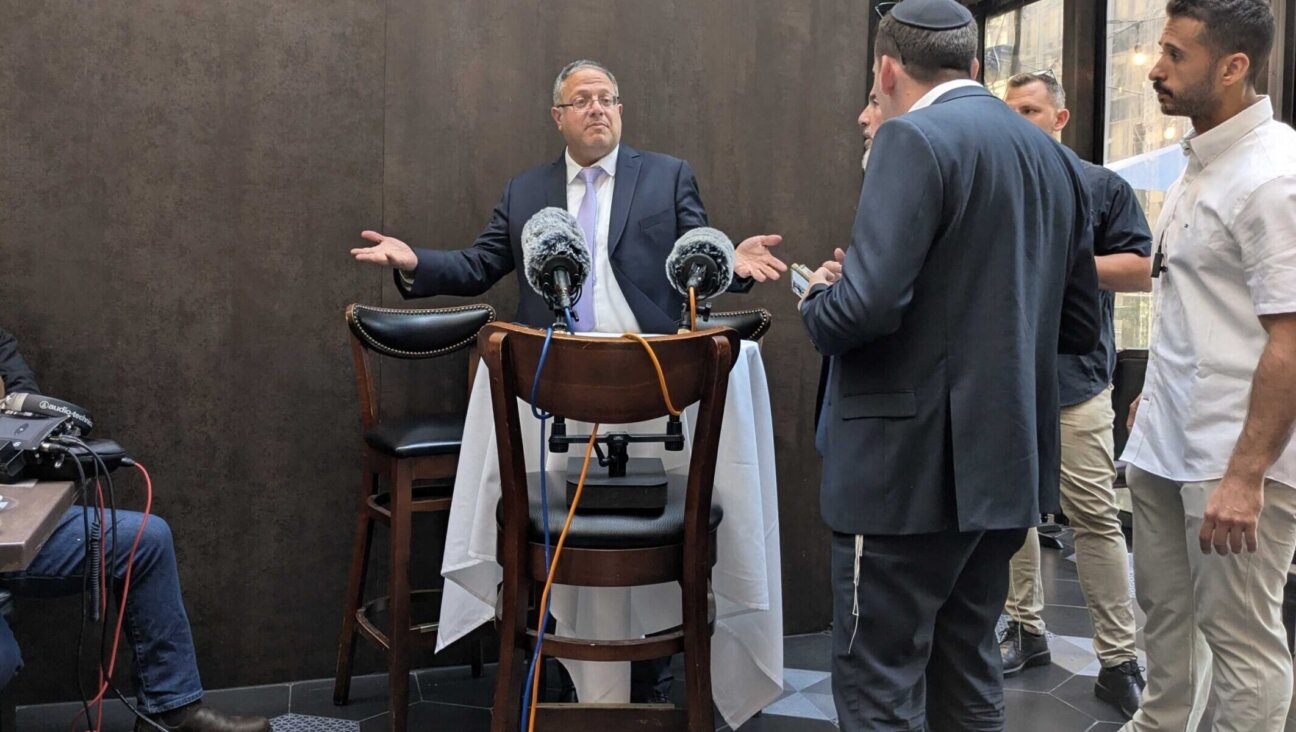
Fast Forward In NYC, Itamar Ben-Gvir says he’s changed — and wants ‘the Trump plan’ in Gaza
-
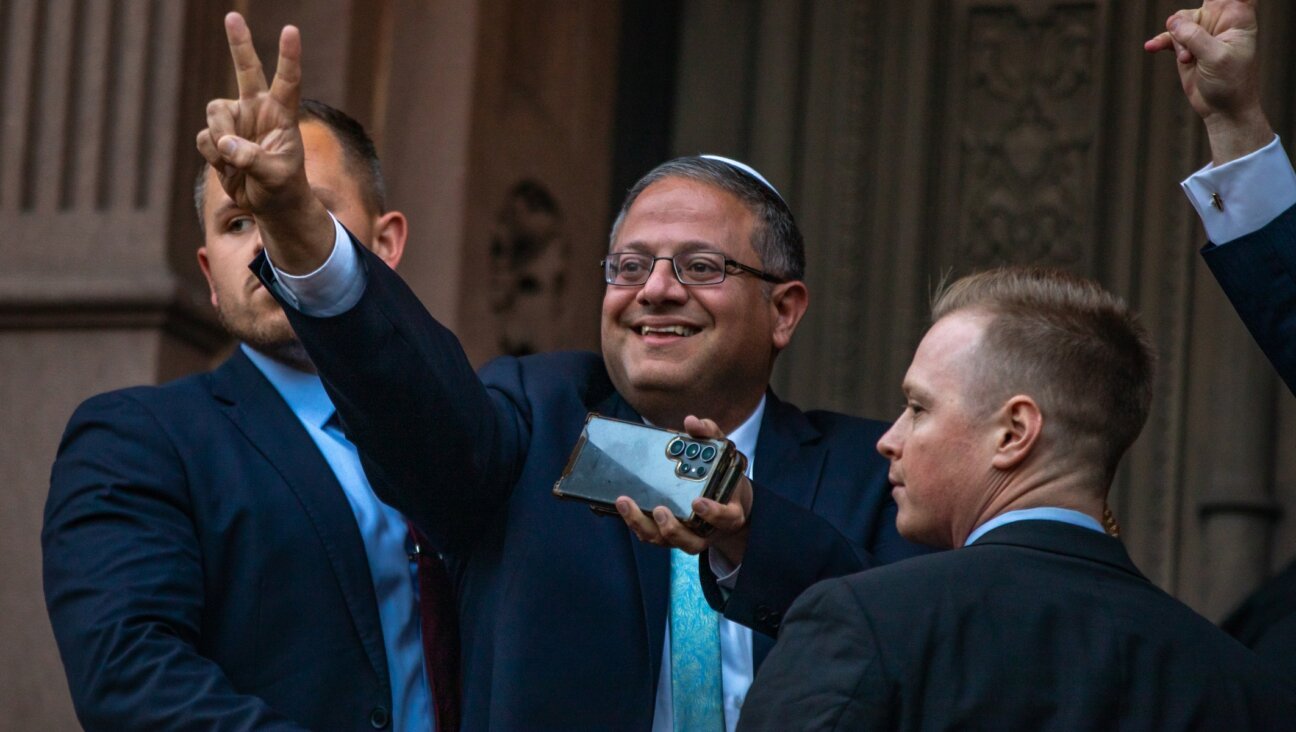
Opinion Itamar Ben-Gvir’s visit to a Jewish society at Yale exposed deep rifts between US Jews
-
Shop the Forward Store
100% of profits support our journalism
Republish This Story
Please read before republishing
We’re happy to make this story available to republish for free, unless it originated with JTA, Haaretz or another publication (as indicated on the article) and as long as you follow our guidelines.
You must comply with the following:
- Credit the Forward
- Retain our pixel
- Preserve our canonical link in Google search
- Add a noindex tag in Google search
See our full guidelines for more information, and this guide for detail about canonical URLs.
To republish, copy the HTML by clicking on the yellow button to the right; it includes our tracking pixel, all paragraph styles and hyperlinks, the author byline and credit to the Forward. It does not include images; to avoid copyright violations, you must add them manually, following our guidelines. Please email us at [email protected], subject line “republish,” with any questions or to let us know what stories you’re picking up.







